So here’s what we know about the ketogenic diet: Its basic makeup is a high-fat, low-carb, moderate-protein diet and it’s known for having powerful effects on weight loss and overall health.
However, getting the body into ketosis takes a lot of dedication in consuming the right amount of pure fats, along with protein, while limiting carbohydrates and eliminating sugar altogether. Most people tend to look towards high fat and protein-rich foods such as full-fat meats, cheeses, cream, and especially bacon to achieve this.
But what if you’re a vegan and you want to get on the keto trend as well? Would this lifestyle work for you? It might be difficult, but with careful planning, vegans can reap the potential benefits of a ketogenic diet.
What Is Plant-Based Keto?
Essentially speaking, people following a vegan diet are restricted, by choice, to eating only plant-based foods, fruits and grains. Any dairy they consume has to be sourced from nuts or soy. Eggs are prohibited, and in some cases, honey is out of the question. This means that vegans have to be more creative when trying to stay true to the keto lifestyle, as well as achieving the state of ketosis.
Luckily, there are a few high-fat, plant-based options vegans have to incorporate into their meals that can allow them to reach ketosis.
Coconut Oil and Coconut
Coconut oil is a prime ingredient that all keto dieters should be implementing into their caloric intake daily. Not only is coconut high in good fats, but its high MCT content makes it highly beneficial to reach ketosis. In fact, MCTs are considered more ketogenic than any other fat, providing the body with boosts of energy, good fats and natural stimulants to encourage mental clarity. Unsweetened coconut shavings taste great when toasted as well, and when consumed as food can deliver the same effect. With liquid smoke and spices, vegans can even mimic bacon using coconut shards to make “vegan bacon”.
Olives and Olive Oil
Gotta love that Mediterranean diet! Vegans can go a long way by relying on olive-based products such as olives and olive oil. The olive is heart-healthy and a “happy” food, as it’s super high in vitamin E – creating a great mood-booster. Olive oil is traditionally extremely fattening (but good fattening!) so for those who find it difficult to enjoy olive oil regularly without the guilt, vegan keto is a great opportunity to douse. everything. in. olive oil. But be mindful when enjoying olives, that some marinades may contain non-compliant ingredients. Make sure to look into details of the marinade your olives are soaking in, or to play it safe, marinate your own!
Avocados
This magical fruit has gained a reputation as a delicious and food, and is in fact, one of the few fruits (besides moderate tomatoes, olives and berries) that are allowed liberally on the keto diet. They are one of the most nutrient-dense foods available, being rich in fiber, folate, potassium, vitamin E, vitamin K and magnesium. Avocado also tastes great and is a versatile food, making a great spread, mash, mayonnaise substitute and more. What can’t you do with an avocado?
Seeds and Nuts
Perfect as salad toppers, garnishes or snacks alone, vitamin-rich and fatty seeds and nuts can also be enjoyed liberally on vegan keto. Load up on those walnuts! Omega-3’s, which pescetarian and omnivorous ketonians get through salmon, are rich in this brain-shaped nut. Other nuts we love on keto are almonds and cashews! Both super fatty and should be eaten sparingly on a regular diet. But on vegan keto? You can quite literally go nuts!
As for seeds, there aren’t many restrictions there, but a great life-hack to be aware of is flaxseed. Rich in fiber, this seed also acts as a binder – so combining it with hot water can be turned into a 100% compliant dough. Did anyone say pizza?
Nut Cheeses and Butters
Vegan keto loves nuts so much it deserves two sections. Nut butters are a great way to get your fat content in order to reach ketosis, and they’re delicious, as well! They act as a great base for lots of things: salad dressings and sauces, if you’re feeling adventurous, and even dessert! Use hazelnut butter and raw cacao to make truffles, sweetened with a keto-compliant sweetener.
Furthermore, did you know you could make cheese out of nuts? You can find these at a specialty store, online, or you can DIY by soaking cashews overnight, blending it with almond milk, spices, (don’t forget the garlic powder) and lemon. Hello, vegan keto ricotta!
The Verdict
It’s very possible to enjoy being vegan and keto at the same time! But it IS difficult without the world of carbohydrates and all the delicious cheeses you can eat.
However, we can imagine that it’s in fact healthier than following a traditional, animal-based high-fat diet, as vegans
Following a vegan diet has been shown to lower risks of developing high blood pressure and type 2 diabetes.
Vegans also tend to weigh less than non-vegans, and those who adopt vegan diets are more successful at losing weight than people who eat animal products. So if weight loss is a goal and reason behind the keto diet, then a plant-based vegan diet could fast track the process. If it doesn’t help, it certainly doesn’t hurt!
Being that both vegan and ketogenic diets may benefit your health in similar ways, but it’s likely that combining the two by following a vegan keto diet would positively impact health as well. You’ll get your vitamins, your minerals, loads of nutrients, and you can feel happy knowing that no animals had to suffer for you to live a low-carb lifestyle.







